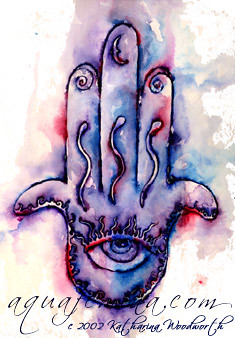For a long time now, I've realized that there is an intriguing comparison/contrast which can be made between the music and chanting which forms a part of sufi dhikr sessions and secular dance music played in clubs, (especially the less verbal genres like techno, house and trance). But recently when I heard the following lyric:
it made me wonder if the lines had some antecedent among some form of Sufi poetry (e.g. "If God is a tabla player"?). It turns out I didn't find exactly what I was looking for but I did come across the following from musician and mystic, Hazrat Inayat Khan:
In some ways, Hazrat Inayat Khan is a controversial figure. Some people almost consider him to have played a large role in creating the false notion that Sufism is something which is seperate from Islam, instead of seeing that Sufism (tasawwuf, tazkiyah, the fiqh and science of acquiring ihsan) as something very integral to Islam. So I would say that he has definitely been influential, but I wouldn't recommend his works as a way to understand authentic Sufism. But in any case, if you want to get a sense of the rest of his opinions you can check out:
The Sufi Message of Hazrat Inayat Khan
Wahiduddin's Hazrat Inayat Khan site
If God is a DJ
Life is a dance floor
Love is the rhythm
You are the music
If God is a DJ
Life is a dance floor
You get what you're given
its all how you use it
"If God is a DJ", Pink
it made me wonder if the lines had some antecedent among some form of Sufi poetry (e.g. "If God is a tabla player"?). It turns out I didn't find exactly what I was looking for but I did come across the following from musician and mystic, Hazrat Inayat Khan:
Why is music called the divine art, while all other arts are not so called? We may certainly see God in all arts and in all sciences, but in music alone we see God free from all forms and thoughts. In every other art there is idolatry. Every thought, every word has its form. Sound alone is free from form. Every word of poetry forms a picture in our mind. Sound alone does not make any object appear before us. Music, the word we use in our everyday language, is nothing less than the picture of the Beloved.
In some ways, Hazrat Inayat Khan is a controversial figure. Some people almost consider him to have played a large role in creating the false notion that Sufism is something which is seperate from Islam, instead of seeing that Sufism (tasawwuf, tazkiyah, the fiqh and science of acquiring ihsan) as something very integral to Islam. So I would say that he has definitely been influential, but I wouldn't recommend his works as a way to understand authentic Sufism. But in any case, if you want to get a sense of the rest of his opinions you can check out:
The Sufi Message of Hazrat Inayat Khan
Wahiduddin's Hazrat Inayat Khan site

